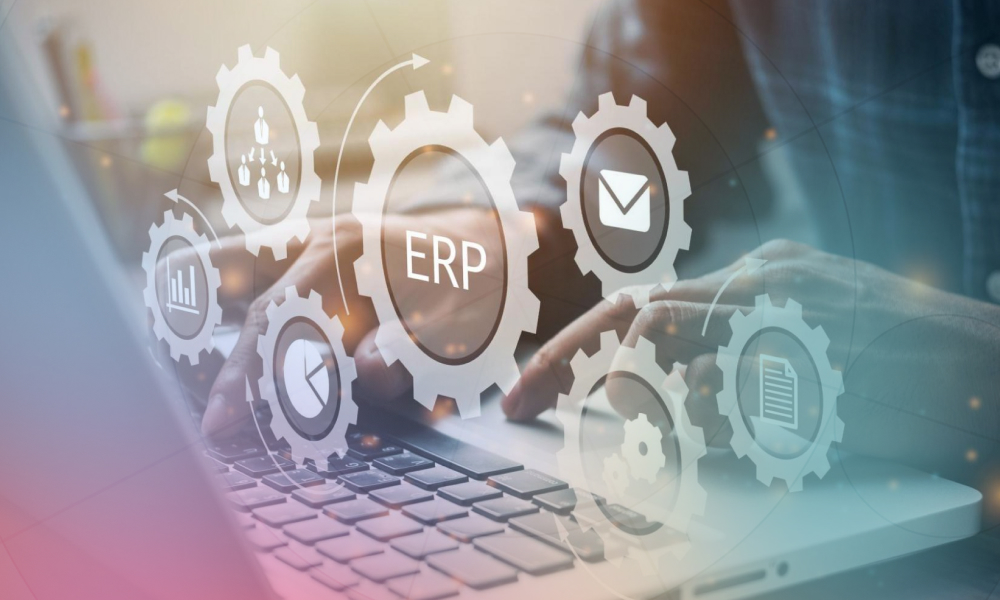Valuable ERP Trends & Forecasts to Watch Out in 2023

Table of Contents
Enterprise Resource Planning (ERP) used to be relatively slow to transform. However, new technology and the latest ERP trends have enabled a rush of swift changes in ERP that will need companies to update quickly.
ERP brings a miscellaneous bunch of fresh opportunities, intricacy, selections, and risks. Let’s explore significant changes in the ERP domain, ERP software trends, and forecasts in the ERP market that you want to watch out for in 2022 and beyond.
Latest ERP Trends for 2023
As new trends in ERP systems facilitate modernization, SMEs and enterprises will continue reaping the rewards that ERP software solutions offer. Let’s discover current and future trends in ERP systems.
1) IoT and AI Integration
IoT-enabled ERP systems can be enabled by IoT devices installed at needed places and machinery that must be monitored continuously. They send the insights to the ERP systems, assemble the information and create real-time reports for enhanced decision making.
On the other hand, Artificial Intelligence (AI) comprehends when it comes to transforming the approaches ERP can offer digitally. AI helps automate repetitive tasks and hands-on problem-solving. It can assist you in reducing incompetence and enhancing business performance levels.
AI-enabled ERP systems leveraging machine learning, chatbots, and natural language processing assist you in attaining set business objectives like reduction in costs, superior productivity, and upgrade operations.
2) Cloud Acceleration
Earlier, ERP applications were only provided as on-premise solutions with starting fees and hardware costs. As an outcome, they were costly for small-sized businesses.
With the rise of cloud computing solutions, as the latest trends in ERP technology, more services providers are now providing cloud-hosted choices that make ERP solutions more manageable to SMEs. Users don’t have to pay for costly system maintenance, sustenance, and upgrades with these solutions. Furthermore, they can select to use the needed modules, offering them control over their finances.
ERP’s use of the cloud doesn’t halt there. A growing number of companies are also moving forward with hybrid ERP solutions. This system category blends the strengths of on-premises and cloud ERP while compensating for each other’s drawbacks. This scenario comprises businesses in the digital media and service sectors.
3) Enablement of Mobile Apps
Mobility was once an additional functionality, but it is more of a fitting solution by today’s benchmarks. Comprehensive mobile backing will be one of the elementary features of a modern-day ERP tool.
With the universality of the cloud, gone are the days when systems were tied to a single machine. Aside from real-time and swift access to data sets, the mobile approach in ERP brings an array of advantages. Both back-end and front-end activities are accessible on smartphones and tablets. One of the exceptional ERP abilities is to execute business operations anytime and anywhere.
4) Impactful Data Analytics and Insights
ERP solutions have always been effective in gathering and well-organizing data sets. When it comes to reporting and analysis, modern-day ERP systems are now natively furnished with influential data analytics functionalities to facilitate current trends in ERP.
Big data and analytics have enabled the approach for a fresh revenue stream for cloud ERP service providers. As organizations now prioritize the capability to make data-steered decisions swiftly, they need analytics-based solutions. The organizations that take support data analytics are 2X as probable to rank high with economic performance, 5X more prospective to make accurate decisions, and 3X more likely to enable those decisions and plans successfully.
5) Real-time Data Access
With recent trends in ERP, access to real-time data improves assets and enhances business operations’ steadfastness. The real-time performance insights help with logistics enablement and quality analysis.
The top management is given more visibility into data sets from variable sources and departments with reliable information. This swift and more competent access to data enables success in decision-making.
6) Custom and Personalized ERP Solutions
We can expect that in 2022 and beyond, one-size-fits ERP solutions will be outdated. However, that does not say that ERP system customization will vanish. Instead, we will be getting industry-ready personalized solutions to back the unique requirements of diverse industries.
Even every element would undergo tuning so that the deployment process’s swiftness won’t suffer to facilitate the boost in flexibility.
ERP systems will offer a better and more extensive user interface in the coming time. All of this will turn more consumer-centric, supple, and easily accessible. Also, the tools would be simple to run not merely for the developer or IT expert but any staff member.
Newest ERP Industry and Market Forecasts to Watch Out in 2023
ERP software was first applied merely in large companies to assist their operations. Today, more modernized technology and functionalities are added to ERP systems to steer efficiencies even for small businesses. Let’s explore the ERP industry trends and emerging trends in the ERP market.
1) More Participation in Finance
Accounting can rationalize bank reconciliations, ledger balancing, account management, and produce periodic reports. Whether you require modules or separate features for cloud accounting or manage bookkeeping for small businesses, financial tools will ease your number crunching.
2) More Consideration of Digital Marketing
Digital marketing assists businesses reach customers online through multiple approaches, from email campaigns to social media promotions. As per our experts, better blending digital marketing with ERP will assist organizations in standing out from their business rivals.
3) Enablement of Two-Tier ERP
Organizations that leverage two-tier ERP software are based in many location sites. Two-tier ERP is the dual execution of ERP within an organization. Tier one is the legacy system which is utilized at the corporate level. Tier two is dealt with by the other company subsidiaries.
Subsidiaries can enhance their back office with regional business models and language while linking to the corporate office’s tier-one solutions.
Two-tier ERP solutions can be leveraged by organizations when:
- A small subsidiary matures large enough to require ERP software.
- There is a subsidiary that has been needing an ERP system.
- An acquired organization’s ERP system is out-of-date.
- A subsidiary’s sector is not sturdily contained at the corporate level.
4) Automation in ERP for Diverse Industries
As per top ERP trends, Automation in ERP enables simplification of procedures in different industries. It enhances work productivity and proficiency.
With all the insights in a centralized location that can flow through the entire company automatically and in a straightforward approach, you can ensure having the precise analytics at your fingertips at the decision-making time.
Moving Forward with Valuable ERP Development Solutions
We explored ERP forecasts, ERP predictions, and emerging trends in ERP applications. However, some organizations are still not sure whether or not they must put their funds into an ERP solution.
We can’t say for sure that you need one. However, we can say with assurance that modern-day ERP solution is a valued consideration. So, connect with our expert team to assist you in making a more informed decision on ERP development.
FAQS on Emerging Trends in ERP
What are emerging trends enabling ERP solutions?
The requirements for virtual meetings, seamless automation, Internet of Things, bot-based solutions, and review systems have enabled many progressions in ERP software.
Which is the most developing and purposeful module of ERP and why?
The finance module is the essential ERP module as it allows businesses to comprehend their existing financial state and future viewpoint.
How will technological progressions impact ERP?
IoT will substantially impact ERP by offering new approaches for procedures to be enhanced, boosting efficiency and trimming down costs.
How does ERP enhance a company's performance levels?
ERP can enhance business performance by crafting approaches to plan, schedule, and optimize work productivity. One instance is how ERP uses workflows to streamline processes, monitor employee performance, and analyze outcomes.
What is the purpose of ERP integrations?
With the boost of AI, mobility systems, and cloud-based operations, companies are ready to integrate data through these systems with ERP, using it at the center of each decision-making process.






